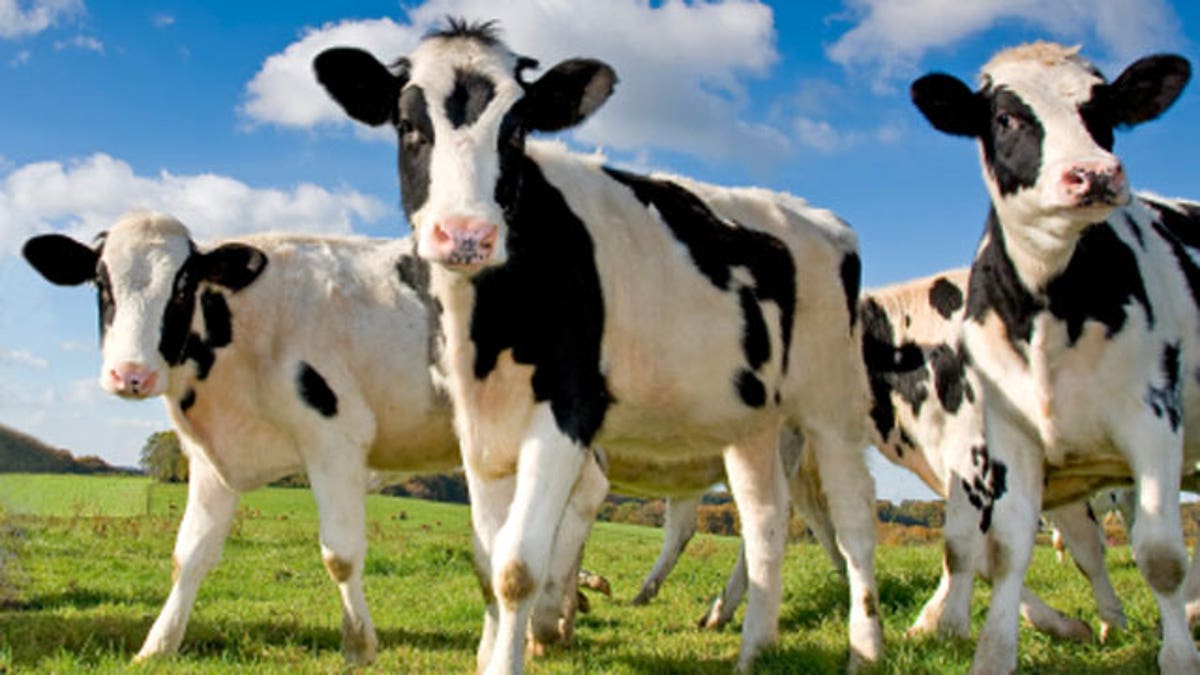
(iStock)
As a mother and RD, I have been curious about hormones in foods and whether or not they are a cause for concern. Hormones are in many foods – including plants. Instead of covering all foods, I am going to focus on cows. There is a lot of marketing that goes into “organic” products – especially milk and beef, which creates fear among consumers about the safety of our food supply.
The “BS” T
Bovine somatotropin (bST) is a naturally occurring protein in the milk of cows which helps to increase milk production and helps calves grow. Recombinant bST (RbST) is a synthetic form of bST that has been used by some dairy farmers to increase milk production. However, RbST is not cheap to use, therefore many dairy farmers do not actually use it. BST is specific to cows. Humans have human growth hormones (HGH) that help us to grow.
Mastitis Anyone?
Some have proposed that increased milk production leads to increased mastitis – infection of the breast tissue. Interestingly enough, mastitis tends to occur in the first 30 to 60 days of milk production – when RbST would NOT be used. If there were an infection, the cow would be given full clinical doses of antibiotics – and just like humans – it’s pump and dump. Therefore any antibiotics would not be making their way into our milk. As a safety measure, all milk is tested to prevent contamination, before being put into the tankers that transport it from the farm to the processor.
According to Dr. Richard Raymond (MD), former Under Secretary for Food Safety at the USDA, mastitis in cows is dependent on factors like the age of the cow, weather, gestation number and more. “There is no difference in the taste or texture in milk from cows that have had RbST,” Raymand said. However, its use has declined.
Where’s the Beef?
Dr. D. Dee Griffin, the Feedlot Production Management Veterinarian and Professor at the University of Nebraska, Great Plains Veterinary Educational Center, explained there are naturally occurring hormones in the grain fed to cows. It is a very sensitive science to make sure hormone levels in cows are “just right.” Griffin explained that cows are super sensitive to heat. When outside temperatures exceed 100 degrees Fahrenheit, cows will stop eating. Compare this to the dangers of the human body, where proteins denature at high temperatures causing systemic failure.
Estrogen Levels
Estrogens are in many foods - specifically phyto or plant estrogens. Soy flower has 755,000,000 (ng/500g), Tofu 113,500,000 (ng/500g), Milk 32 (ng/500g) and Beef from implanted steer 7 versus non implanted steer 5 (ng/500g). A pregnant woman produces 19,600,000 ng/day, non-pregnant woman 513,000 ng/day, adult man 136,000 ng/day, pre-puberal children 41,000 ng/day and 500 g of beef from implanted cattle 7ng.
Why give cows hormones at all? To redistribute muscle versus fat. We like lean beef right? Griffin said that the hormones impact metabolism. There needs to be enough available food for the cow to consume or else the cow will become catabolic and breakdown lean muscle mass. Heifers are given progesterone to keep them from going into heat, and it can become a stressor on the cow and the herd.
Antibiotics
Some people fear that antibiotics used in animals is contributing to antibiotic-resistance in humans. However, the science has not shown a link at this time. Rumensin is one antibiotic used in cattle to prevent coccidiosis, a parasitic infection which can be highly contagious and potentially deadly. The debate over whether to treat cattle with antibiotics is interesting – considering many of us would treat our pets with antibiotics if needed – why not livestock?
Your Health
The American Cancer Society has no concern about dairy consumption increasing cancer risk or speeding up puberty. The CDC data looking at early puberty is not about “hormones” in foods. It is tied into improved health and nutrition – which also includes over nutrition and excess body fat causing hormonal issues for children.
Felicia D. Stoler, DCN, MS, RD, FACSM is a doctorally trained registered dietitian, exercise physiologist, TV personality and expert consultant in disease prevention, wellness and healthy living. She is the author of "Living Skinny in Fat Genes: The Healthy Way to Lose Weight and Feel Great." She hosted TLC's ground-breaking series "Honey We're Killing the Kids!" Become a fan of Felicia on Facebook, follow her on Twitter or visit her website FeliciaStoler.com.








































